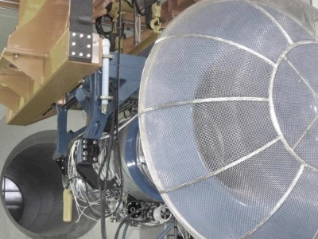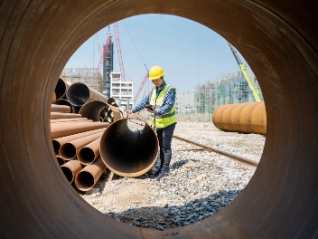Ben Green, President and Owner at Metalco Incorporated in Chicago, Illinois, explains how Atradius Trade Credit Insurance has helped him secure new business confidently.

Recommended reading

Latest news and insights

Reports and whitepapers from our industry experts

Helpful guides at your fingertips

Examples of high quality credit management processes and practices in a variety of different sectors and markets throughout the world

Success stories from our diverse range of clients
Tariff-related economic uncertainty still weighs on commercial construction activity


Trade credit insurance is far more than a safety net—it’s a strategic tool for SMEs.

Cultural variables shape payment behaviour, negotiation patterns and risk outcomes in cross‑border trade

Economic effects will be modest for the time being, but the agreement is likely to spur mutual key sectors´ exports and...

An investigation involving Fed chairman Powell may weaken trust in US monetary policy, adding global headwinds and...

Longevity isn’t about nostalgia. It’s about resilience, adaptability, and purpose. Here’s why...

Discover how the global economy is navigating trade tensions and uncertainty, with AI investment driving resilience and shaping growth prospects for 2026 and beyond
Economic effects will be modest for the time being, but the agreement is likely to spur mutual key sectors´ exports and...


An investigation involving Fed chairman Powell may weaken trust in US monetary policy, adding global headwinds and...

When a U.S. company files for Chapter 11 bankruptcy, the effects often reach far beyond America. For European creditors,...

From energy markets to supply chains, Washington’s assertive moves are redefining sovereignty norms and...

Our Q1 of 2026 Industries Forecast per Market provides business performance and credit risk...

Europe hopes faster AI adoption will make up for lagging investment in platforms and infrastructure

Atradius Syndicate 1864 will help financial institutions manage trade credit risk more efficiently
Viewing 7 out of 71
Tariff-related economic uncertainty still weighs on commercial construction activity


Accelerating AI demand drives one of world’s fastest-growing industries

Asia drives pharma growth, although outlook for all regions remains healthy

Amid a fragmented global landscape, the EU and India are pursuing different strategies to build economic resilience...

Discover how the global economy is navigating trade tensions and uncertainty, with AI investment driving resilience and shaping growth prospects for 2026 and beyond

Industry growth slows as global trade applies the brakes

Can South Africa's GNU party overcome tensions and structural challenges to unlock GDP growth?
Viewing 7 out of 210
Filter by
Trade credit insurance is far more than a safety net—it’s a strategic tool for SMEs.


Cultural variables shape payment behaviour, negotiation patterns and risk outcomes in cross‑border trade

Understanding what drives credit insurance costs gives businesses valuable insight into risk, so they can trade with confidence in any...

Longevity isn’t about nostalgia. It’s about resilience, adaptability, and purpose. Here’s why...

Smart strategies to protect cash flow, strengthen client relationships, and ensure invoices are paid on time...

Companies face credit risk when delivering goods without upfront payment, but with customised work this risk begins sooner

Find out the common late payment excuses and how to respond to safeguard your business's cash flow and...
Viewing 7 out of 38
Every customer is a...




Vestas uses Atradius Surety solution to support their trade relationships.

Atradius Surety supports OX2’s commercial aims and helps facilitate their rapid growth in the wind power industry.

Atradius Surety works closely with PORR AG to provide them with surety bonds tailored to their needs, and quick...

...
Viewing 7 out of 17



Case Study
EnCom Polymers: credit management for chemicals sector
With the backing of Atradius’s resources, EnCom Polymers has been able to expand business with existing customers and go after new business they previously would have shied away from.
After adopting Atradius trade credit insurance, MBS found that their credit control processes improved so much that staff had more time to devote to clients.


Janson Bridging (International) uses export credit insurance from Atradius Dutch State Business (DSB) to offer favourable credit terms to customers...

By providing open dialogue, insight and valuable credit information we helped Brook Green Supply improve their internal credit...

El Ganso credits our support in helping the fashion brand grow from a domestic-focused Spanish startup to a successful international business.

Calidad Pascual partners with international credit insurance firm Crédito y Caución Atradius to gain additional knowledge of international markets.

Late payers prompted content marketing agency KMOdynamoo to take out an Atradius credit insurance policy and has resulted in better debtor management.

FERM (International) offers competitive payment terms and limits their credit risk to developing countries by using Atradius Dutch State Business (DSB) and...
Viewing 7 out of 9





































